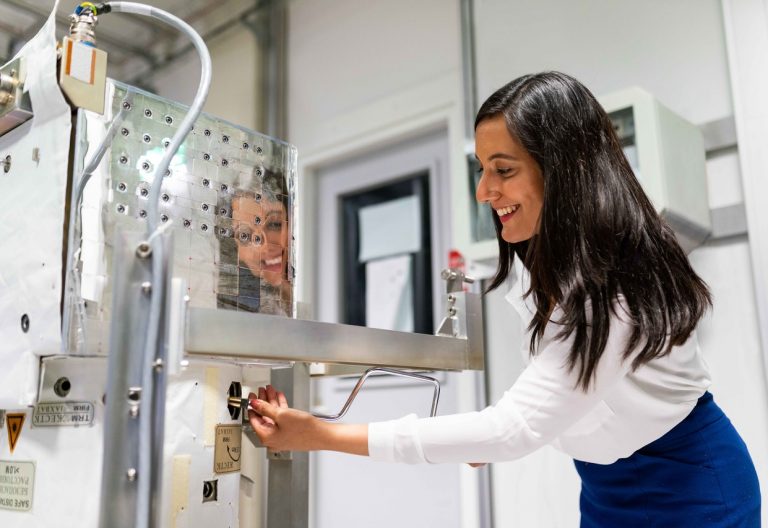You might think that technical knowledge is the key to building a successful career in engineering. But as any HR manager will tell you: ‘Hard skills get you hired, but lack of soft skills will get you fired.’ A recent study also shows that 44% of US employers believe that their workforce is missing critical soft skills. And you don’t want to be part of that statistic, do you? So if you want to succeed in your career, then it’s time to start thinking about the importance of soft skills for engineers.
Creative Skills
Innovations thrive with creativity. Are you able to think outside the box? Organizations depend on their employees to come up with better, faster and cheaper solutions. For engineers, your creative skills are just as important as your ability to solve problems. Start by asking questions and don’t be afraid to experiment with new methods. It could lead to creative ideas and solutions that the entire organization will thank you for.
Soft Skills for Engineers: Curiosity
A trait related to creativity is curiosity. Especially in the field of engineering where one technical development follows the next so quickly, it’s good to be inherently curious. It shows that you’re willing to learn, that you ask questions and will actively start looking for the answer.
Communication Skills
No matter how strong your technical skills are, without adequate listening, speaking and writing skills, it’s impossible to thrive in your job. When deciding if you’re the right person for the role, employers need to know if you’re able to bring across what you’re doing and why. Especially in more senior roles your relationships with stakeholders will be mostly determined by the way you communicate with them. So when it comes to soft skills for engineers, communication is an important one to master.
Collaboration Skills
Regardless of the industry you’re in, engineering is a discipline that often demands working with other people, including those with different backgrounds. Your ability to work well in a team will shape the relationship with your colleagues. You can’t do everything in isolation, and great ideas are often formed by exchanging thoughts with others. For teams to work, there needs to be effective communication, a shared responsibility and accountability, along with quality leadership.
Soft Skills for Engineers: Leadership
Speaking of leadership, this is another important soft skill for engineers. And not only for those in a management position. During a job interview your future employer would like to see examples of how you demonstrated leadership in previous roles. Are you comfortable with taking the lead and making decisions? Do people look to you for guidance, can you earn their trust? With strong leadership skills engineers are able to make a real difference.
Problem-solving
Any number of problems or issues may arise in your work environment. Whether they have to do with the project or the people you’re working with, it matters how you solve them. How do you analyze the situation, collect relevant information, deal with conflicts and make decisions? Analytical thinking is probably the soft skill that engineers feel most comfortable with and it’s a skill you can use and develop in many situations.
Adaptability
Can you think on your feet and quickly adapt to new situations? There is no shortage of challenges and problems that arise on a workday. Your employer needs to know how you’re going to respond when that happens.
There’s more than one way to reach a goal and it’s up to you to assess problems and find suitable solutions. The ability to come up with a well-thought-out, practical solution within a given time frame is a valuable soft skill that every engineer should develop.
Organizational Skills
Whether you’re just starting your career or are a seasoned professional, your organizational and project management skills are crucial for your overall effectiveness. Delivering a project within a deadline requires time management, communication skills, risk management, leadership and execution skills. No one becomes a great project manager overnight. You learn from your mistakes and are aware of where you need to bring in support.
Soft Skills for Engineers: Self-awareness
How well do you know your own strengths and weaknesses? We all have them, and being aware of them is an important soft skill for engineers to get hired. Understanding – and controlling – what triggers you and why you respond to situations in a certain way, will make you a better leader and a more pleasant person to work with. Nobody’s perfect, and you don’t have to be. As long as you’re able to evaluate yourself and be honest about where there’s room for improvement.
Open to feedback
Finally, your openness to feedback is a soft skill the person interviewing you will look for. It’s not just that you will listen to and accept the (positive or negative) feedback, but more importantly what you will do with it.
A good manager (or colleague) will provide feedback to help you grow. If you’re ignoring it, you won’t grow.
How to develop soft skills for engineers?
Did you identify some soft skills you’d like to work on? Look for opportunities where you can develop a specific skill. But start small and ask for help. Maybe you know someone who you admire for that skill? There was a day when they were where you are today, so ask if they’d like to mentor you and give you valuable tips. In the end, developing soft skills is the same as learning other skills: ‘practice makes perfect’. So try to push yourself out of your comfort zone and you’ll eventually do great!




